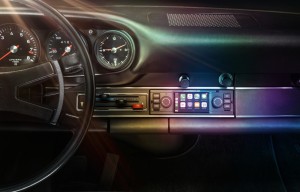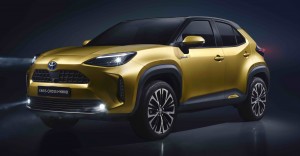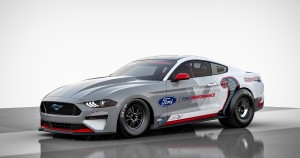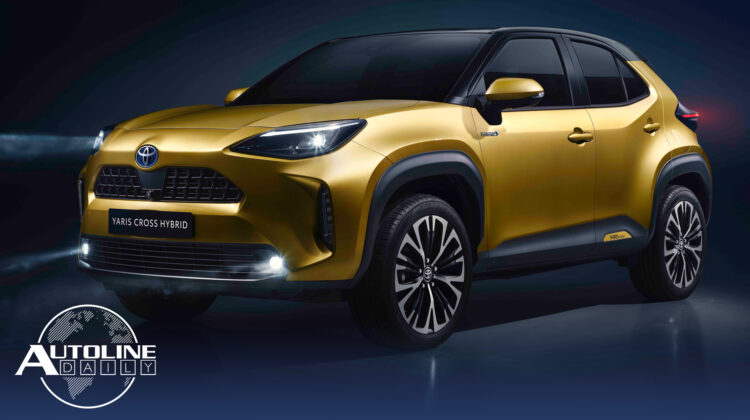
Listen to “AD #2822 – Global Pollution Drops; Cylinder Deactivation for Diesels; Toyota Debuts All-New Yaris Crossover” on Spreaker.
Follow us on social media:
Runtime: 11:19
0:07 Bad News Out of Europe
1:20 Hyundai & Nissan Report Quarterly Losses
1:38 Global Pollution Drops
2:27 U.S. Sales Not As Bad As Expected
3:39 Hyundai’s Commercial Fuel Cell Plan
5:26 Kia’s Going All Electric
6:36 Porsche Offers New Radios for Classic Cars
7:22 New Nav System Highlights the Road
8:30 Cummins Tests Cylinder Deactivation on Diesels
9:12 Toyota Debuts Yaris Crossover
9:46 Ford Mustang Cobra Jet Goes Electric
10:28 Manual Transmission Prevents Car Jacking
Visit our sponsor to thank them for their support of Autoline Daily: Bridgestone.
This is Autoline Daily, the show dedicated to enthusiasts of the global automotive industry.
There’s still a lot of bad news of how the coronavirus is crippling the auto industry, but there are some glimmers of hope.
BAD NEWS IN EUROPE
First the bad news. And we start in Europe. It was hard to believe it was only two months ago that Daimler was projecting significantly higher profits this year. Not anymore. It’s EBIT profit plummeted 78% in the first quarter. That’s not good, but at least its car and truck operations were able to post a profit. Even so, Daimler said it will cut 10,000 jobs over the next two years, even if the market fully recovers. In France, Renault is looking for financial help from the French government to make sure it doesn’t run out of cash even though it slashed spending. Meanwhile in Russia, the government is afraid that the virus crisis will cause other automakers to abandon the market like GM and Ford did. Wards reports that the Russian government will provide direct financial support for R&D and plant modernization. The governor of St. Petersburg says he will cut the tax on profits. But we would point out there aren’t going to be any profits to tax anyway.
HYUNDAI & NISSAN REPORT QUARTERLY LOSSES
Now over to Asia. Hyundai says the first quarter was bad with sales down 24%. In March alone it’s sales were down 40%. And it expects the second quarter to be even worse. In Japan, Nissan reported its first quarterly loss in over a decade.
WORLD POLLUTION LEVEL DROPPING
OK, now to some of the good news. There’s been one very noticeable benefit to the coronavirus lockdowns… cleaner air. According to a new report from IQAir, a Swiss company that collects air quality data, air pollution levels have dropped anywhere from 9 to 60% in 10 major global cities during the lockdown. The study looked at fine particle pollution compared to the same time period in 2019, in Delhi, London, Los Angeles, New York City, Madrid, Mumbai, Rome, São Paulo, Seoul and Wuhan. All of the cities saw a decrease, except Rome, which was up 30%. Delhi saw the largest decrease with pollution plunging 60%.
U.S. SALES NOT AS BAD AS EXPECTED
And in some other good news, car sales in the U.S. have not dropped as badly as originally expected. Of course, it’s all relative. LMC Automotive says retail sales were down 48% in April. Normally that would be considered a complete disaster, but analysts were expecting the 80% drop that we saw in China in February.
We have a terrific Autoline After Hours coming up this afternoon with Bob Galyen, one of the foremost battery experts in the industry. We’ll be asking him about cost reduction, recycling, charging, and a host of other EV topics. We’ll be taking your questions too, so send an email to viewermail@autoline.tv or tweet it to as @Autoline. Anton Wahlman from Seeking Alpha will also be on board, so join Gary Vasilash and me for some of the best insights into the automotive industry.
HYUNDAI’S COMMERCIAL FUEL CELL PLAN
Hyundai is taking a different approach with cutting emissions. While most of the auto industry plunges into battery electric vehicles, the Korean automaker is still committed to fuel cells. Last year, the company announced its exploring bringing fuel cell powered commercial vehicles to the U.S. market. I spoke with Jerome Gregeois, the Senior Manager for Powertrain at Hyundai, and he went into more details about its fuel cell commercial vehicle strategy.
Jerome Gregeois, Senior Manager of Powertrain, Hyundai
“So, in heavy duty, the goal of the truck is really to move a weight from one place to the other. And if you really want to get a lot of distance, you need to put a lot of battery and that’s hurting the payload. So fuel cells have a benefit in that situation on the heavy duty. And there’s some efforts from Hyundai currently overseas, the first application you’ll see is in Switzerland, where some trucks will actually be deployed this year. And it’s not quite a long-haul like we have them in the U.S. It’s more like a box truck, that’s going to do some grocery delivery but at the scale of Switzerland which is maybe (the size of) Southern California expanding into the Central Valley. And after that first application, we’ll definitely be looking at what we can do in the U.S. to create a market and then start helping areas like Southern California for instance that suffer quite a lot from traffic of heavy duty. You have a very large port in LA and a lot of the goods are going elsewhere and that’s kind of not really helping our air quality either.”
For more about Hyundai’s fuel cells, you can watch that entire discussion now on our YouTube channel.
KIA SHARES MORE DETAILS ABOUT ITS EV STRATEGY
But while Hyundai is still committed to fuel cells, Kia is going all electric. It shared more information about its Plan S, which is a $25 billion investment over the next 5 years to switch from an automaker that makes vehicles with ICEs to an EV maker. By 2025, Kia will have 11 new EVs, including sedans, crossovers, SUVs and MPVs. One of those new products will be shown off at the end of the year and will arrive late in 2021 in the U.S. It will be Kia’s first dedicated EV, meaning it will have no ICE variant and is built on an all-new EV platform. Kia says it’s a crossover that will blur the lines between CUV and passenger car. It mentioned the HabaNiro and Imagine concepts when talking about the new EV, so we would expect to see influences from both. And lastly, it will have about a 300 mile range in the U.S. and sub-20 min recharge time when using a fast charger.
PORSCHE OFFERS NEW RADIOS FOR CLASSIC CARS
Porsche is offering new radios for some of its classic cars that keep the classic look but they’re stuffed with the latest technology. The radio units keep their classic look with rotary knobs and push buttons. They’re offered in two dimensions, which will fit cars from the 60’s to the 90’s. Upgrades over the originals include touchscreens, Apple CarPlay and navigation. Another improvement over previous versions is the ability to get digital radio stations. Pricing ranges from about 1,440 euros to a little over 1,600 euro.
NEW NAV SYSTEM HIGHLIGHTS THE ROAD WITH DIRECTIONS
You almost have to wonder how we got anywhere before we had navigation systems in our cars. But wait, it’s about to get better. And here’s what the next generation nav will look like. The German consultancy IAV is working on a system where all you have to do is pair your phone with your car and tap on the next appointment on your calendar. The nav system then calculates how you need to get there. But instead of you looking at a map on a screen in the car, the nav system highlights your route. In this case it turns the lane you’re supposed to be driving in to green. So all you have to do is drive in the green lane. And if you come upon some kind of obstruction, or want to go a different way, the nav will recalculate your route on the fly in real time, just like it does today. But it will continue to highlight your path in green. It’s all about the next generation of head-up display where the info is projected on the windshield. And it’s safer because you always keep your eyes on the road instead of looking at a screen.
CUMMINS APPLIES CYLINDER DEACTIVATION TO HD DIESEL
Tula Technology is the company that developed the dynamic cylinder deactivation system used in GM’s vehicles. And now it’s partnering with Cummins. WardsAuto reports that the two companies applied Tula’s Dynamic Skip Fire technology to one of Cummins’ 6-cylinder diesels that’s used in Class 8 semis. Not only did the engine see minor improvements in C02 and fuel efficiency on the Federal Test Procedure, but also a massive 45% reduction in NOx emissions. They’re still in the testing phase but if Cummins adopts Tula’s technology it would take about three years to reach the market.
TOYOTA DEBUTS YARIS CROSSOVER
The Toyota Yaris Cross made its world debut. It was originally going to be unveiled at the Geneva auto show in March but as you know that was cancelled. And as you might guess by the vehicle’s name, it’s a crossover version of the Yaris. It’s powered by a 1.5L, 3-cylinder gasoline engine that can be mated to a CVT or a 6-speed manual. A 1.5L hybrid powertrain is also available. The Yaris Cross goes on sale in Japan this fall and it will be available in Europe in the middle of 2021.
FORD’S MUSTANG COBRA JET GOES ELECTRIC
Ford’s Mustang Cobra Jet has been tearing up drag strips since the 60’s and now it’s going electric. While we’re low on details, here’s what we know. The Cobra Jet 1400, as its name implies, will have over 1,400 horsepower and more than 1,100 pound-feet of torque. That will help return a quarter mile time in the low 8 second range at over 170 MPH. For those of you wondering, a Tesla Model S can do the quarter mile in 10.4 seconds and the gas-powered Cobra Jet does it in the mid-8 second range at 150 MPH.
MANUAL TRANSMISSION PREVENTS CAR JACKING
Before we go we just had to share this story that our viewer Bo from Winnipeg in Canada sent to us. Two men in their 20s tried to high jack a car. They stabbed the driver in the leg and stole his phone and keys, but they couldn’t make their getaway because the car had a manual transmission and they didn’t know how to drive it. The driver is OK, but the Winnipeg police are still looking for the crooks. Score another victory for the manual transmission!
But that’s it for today, thanks for watching and please join us again tomorrow.
Thanks to our partner for embedding Autoline Daily on its website: WardsAuto.com
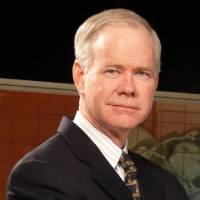
John McElroy is an influential thought leader in the automotive industry. He is a journalist, lecturer, commentator and entrepreneur. He created “Autoline Daily,” the first industry webcast of industry news and analysis.





